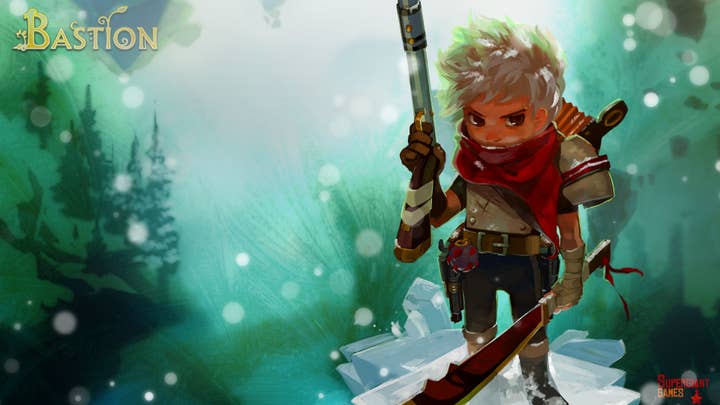Ports should be better than the original, says Bastion dev
DICE 2013: Supergiant co-founder says ports can be more than cynical, disappointing cash-ins
The word "port" has a negative connotation in the game industry, but Supergiant Games co-founder Amir Rao says that shouldn't be the case. In a presentation at the DICE Summit today, Rao explained his company's approach to bringing the Xbox Live Arcade hit Bastion to new platforms.
Rao started by acknowledging that nobody likes ports. Developers find them creatively unsatisfying, gamers have likely experienced the game already, and platform holders don't jump at the idea of reheated leftovers on their system. As a result, too often the ports are afterthoughts churned out to make a buck.
"We shouldn't be surprised when we do things in a cynical and disappointing way, that they produce disappointing results," Rao said.
For Bastion, the team was determined not to let that happen. Rao wanted Bastion to get better with each iteration, in the same way he felt that Plants vs. Zombies improved when it went from PC to Xbox Live Arcade or iOS. The solution for the team was to redesign the game around a touch-driven interface. Rao said conventional solutions like having a virtual gamepad displayed on the screen were "deeply unsatisfying," and the self-imposed design constraint that the game had to be playable with just one hand nearly killed the project multiple times.
Eventually, the team hit on the idea of automating the combat, using touch to move the main character around the screen while having him automatically choose targets and fire away at them when appropriate. Fans liked the idea as well; Supergiant included a virtual gamepad option in the iOS version of Bastion as well, but only 40 percent of players tried it out, and half of them reverted to the team's specially designed touch interface.
Rao compared the porting process to a band going on tour. The original game release is the album launch, and as the game makes tour stops on new platforms, it changes and refines the experience.
"What fans really want is for you to put the same creative energy that went into making the original game into reimagining it," Rao said.
It worked for Bastion. Rao said that the team's approach to porting it had given it longer than expected legs. To date, Bastion has sold more than 1.7 million copies, with more than 90 percent of those sales coming after the game's first month on sale.

